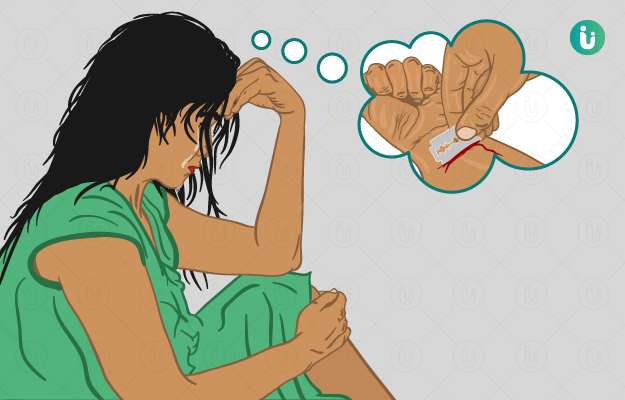What is suicidal tendency?
Suicide is the act of ending your own life. A person’s inclination towards having suicidal thoughts or ideas is called suicidal tendency.
What are its main associated signs and symptoms?
Though there is no direct way of telling if a person is suicidal, there are some warning signs that we can watch out for like:
- A person may isolate themselves from company, and express disinterest in routine activities.
- One may feel lonely, helpless and finds no reason to be happy with their lives.
- Frequent mood swings are also a sign to watch out for.
- One may talk more often about death, and may seem to prepare for it or plan it out.
- A person who has suicidal thoughts can be under the influence of drugs, alcohol or may have other addictions.
- Feelings of guilt, helplessness, and worthlessness are commonly noted in persons with suicidal tendencies.
What are the main causes?
One cannot give a sole reason as to why someone would want to end their life. However, just like the warning signs, there are some risk factors that can cause a person to have such thoughts.
- A major loss, physical injury or trauma can trigger suicidal thoughts.
- Financial problems, lack of professional satisfaction, or work-related problems may also cause a person to develop suicidal tendencies.
- Someone may also feel suicidal if they are suffering from a major physical or mental illness, or if they have a prolonged unresolved health condition.
- Family disputes, domestic problems, or conflict with a loved one can make a person feel helpless and suicidal.
How is it diagnosed and treated?
Based on one’s behaviour, history and attitude, an expert can diagnose a person with suicidal tendencies. They will take a detailed history of your personal life, health problems, history of medication and any other relevant information.
- Treating suicidal tendency means treating the cause that is leading to the thoughts.
- This can be done through various forms of therapy and sometimes medications too may be needed.
- Psychotherapy and cognitive behavioural therapy are forms of therapy that can help.
- Taking care of the underlying physical illness is also important.
- Medications like anti- depressants may be prescribed If necessary.
- It is important for a person to inculcate positive lifestyle changes, give up substance abuse, and spend time doing things that make them happy like pursuing a hobby, spending time with friends and family.

 Doctors for Suicidal Tendency
Doctors for Suicidal Tendency  OTC Medicines for Suicidal Tendency
OTC Medicines for Suicidal Tendency



















